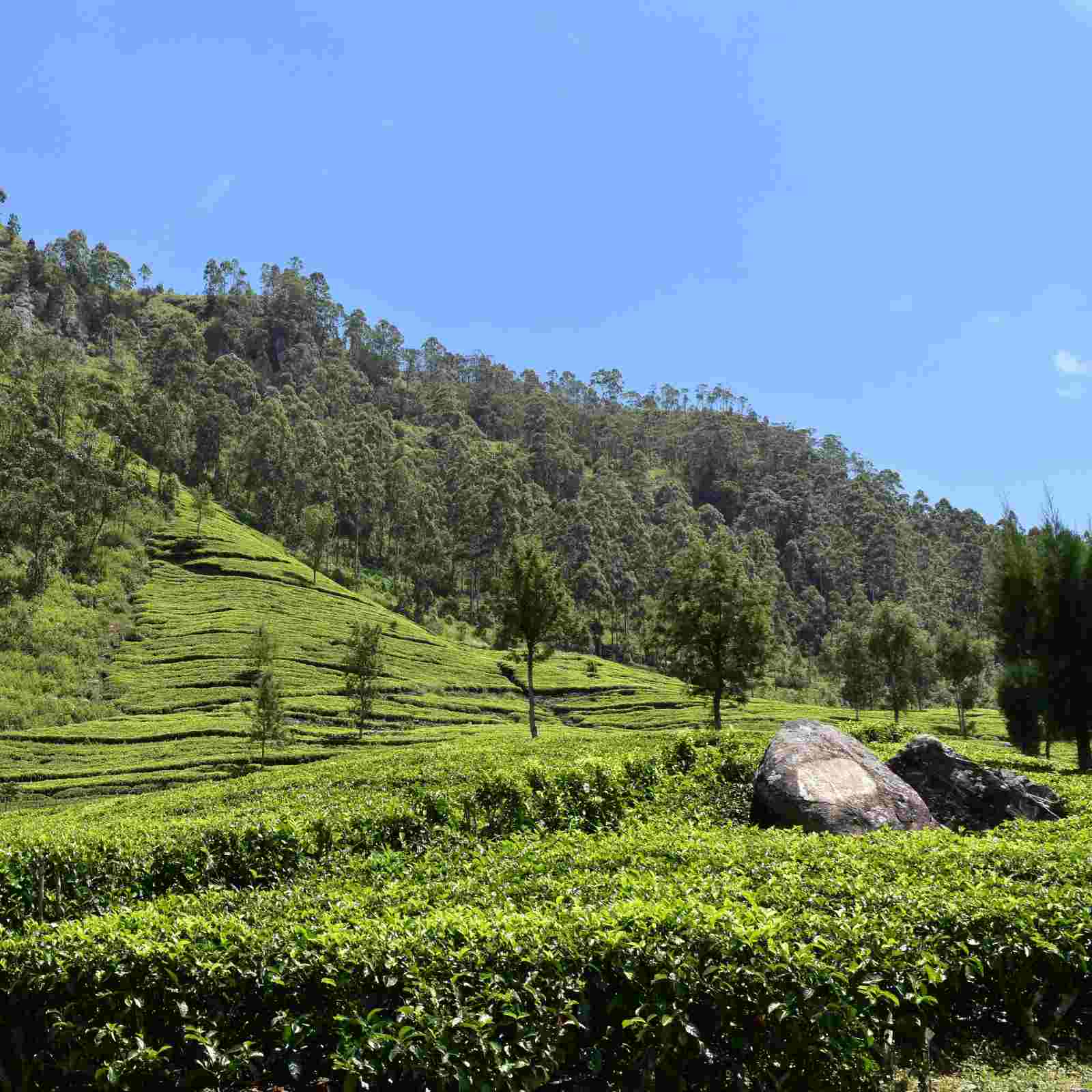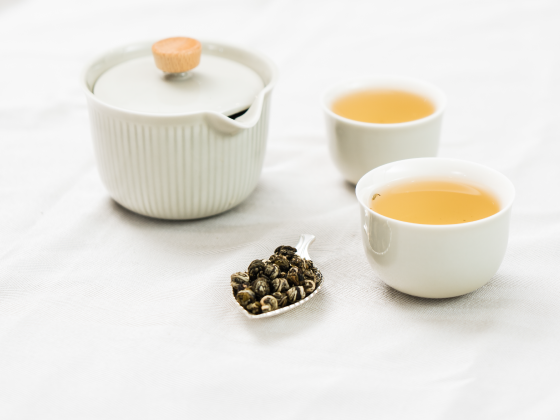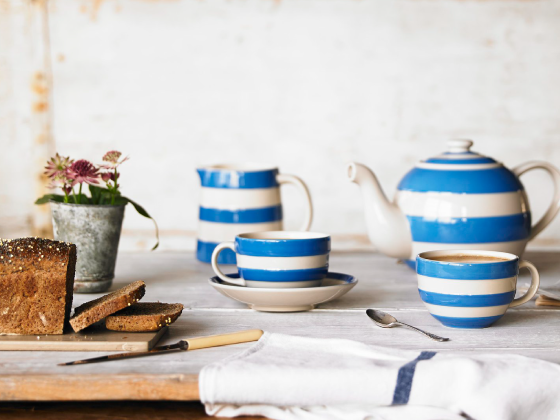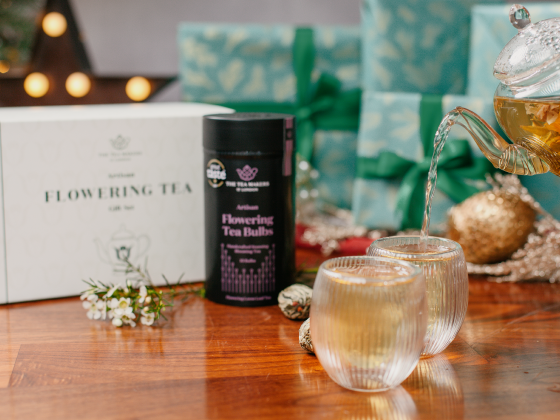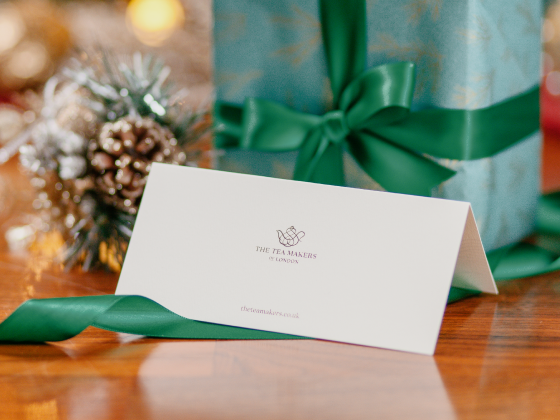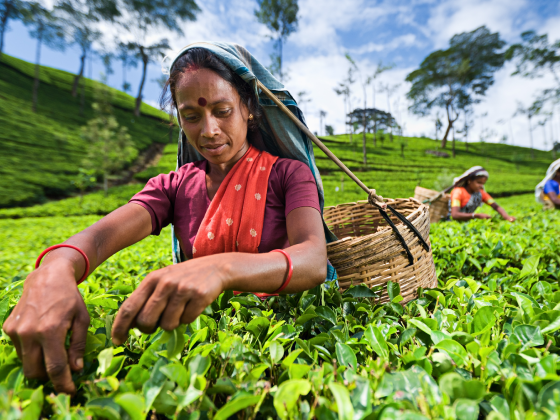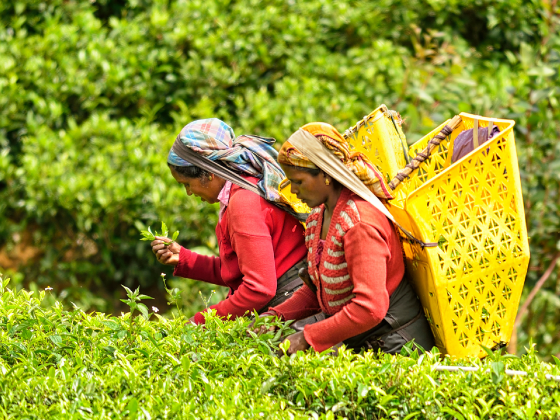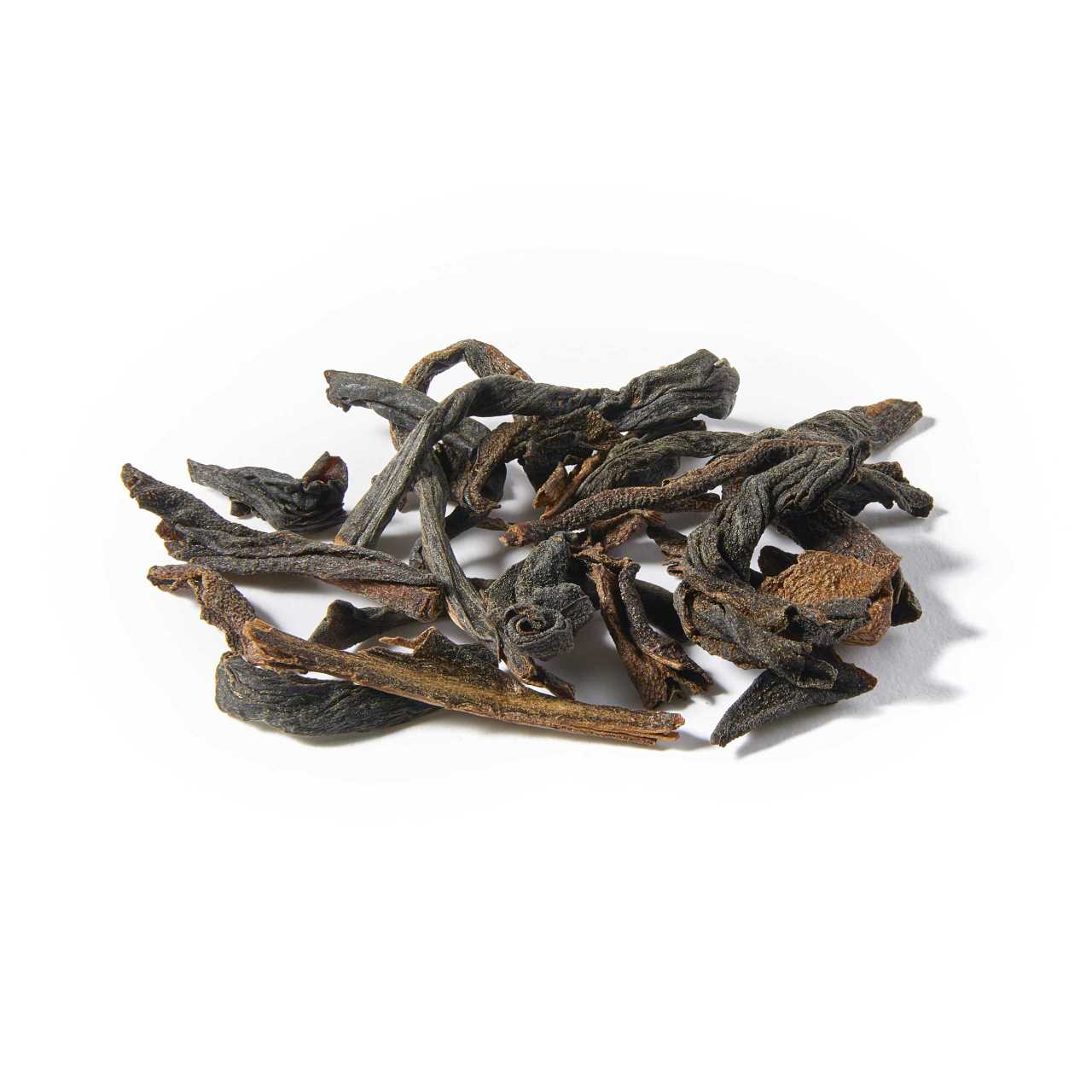
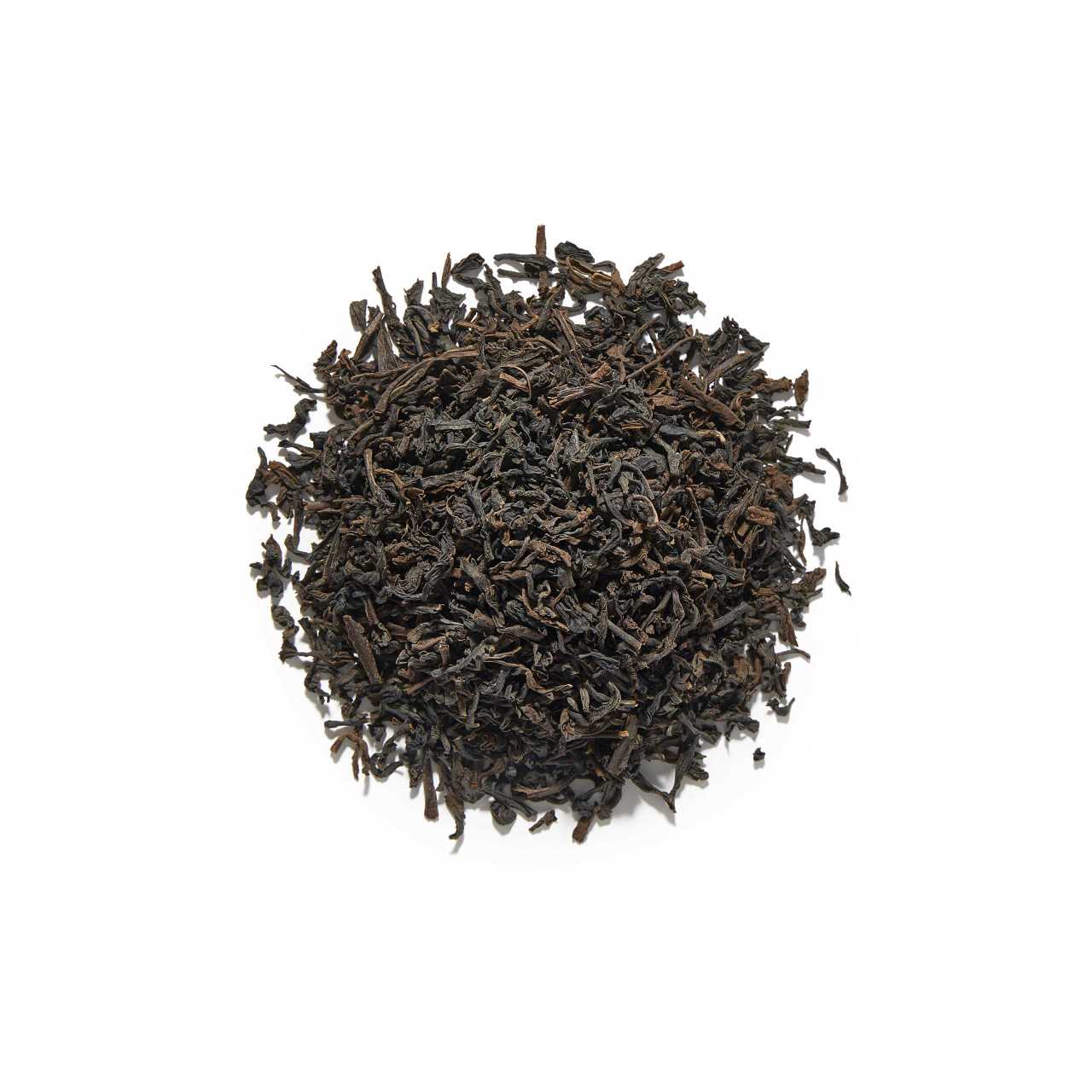
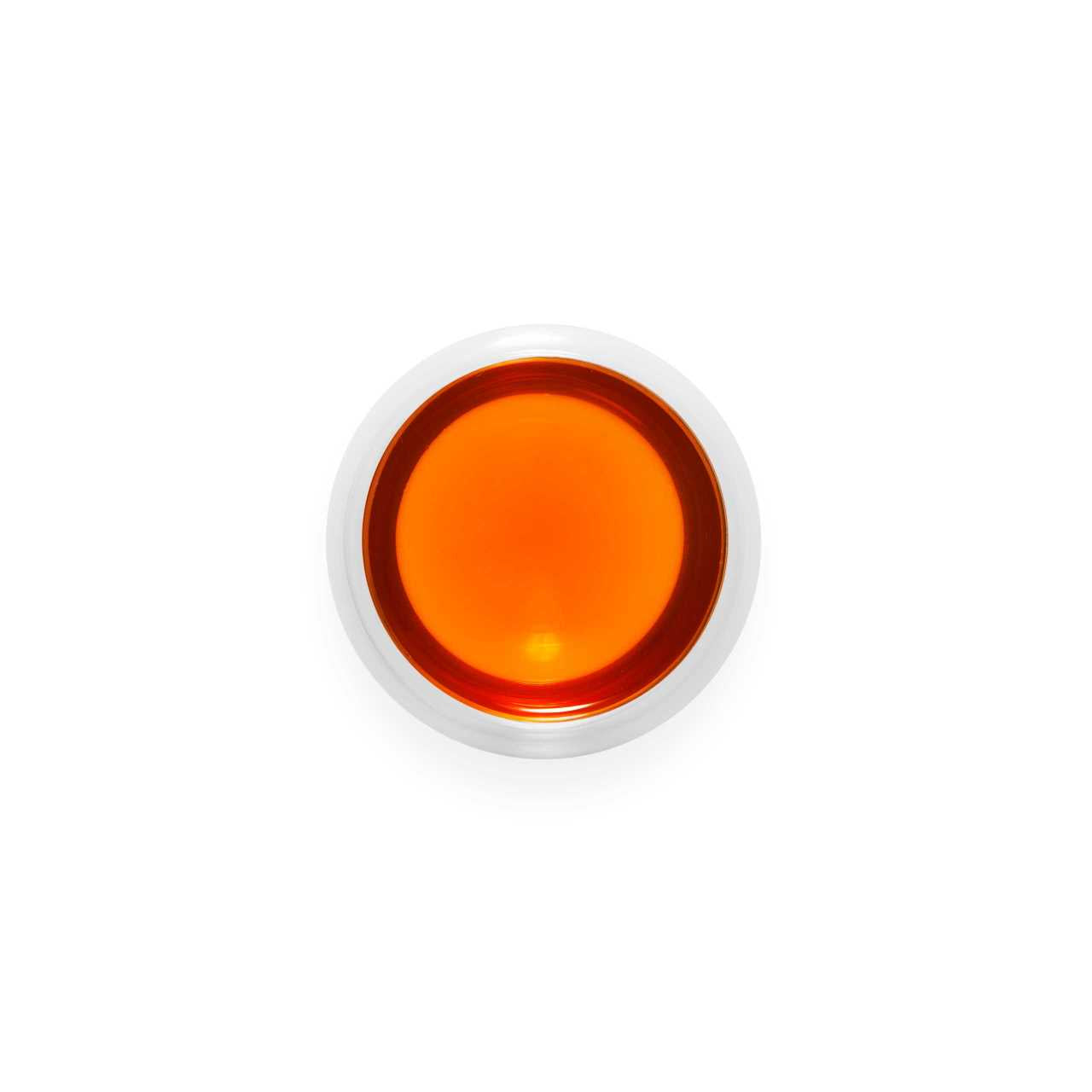
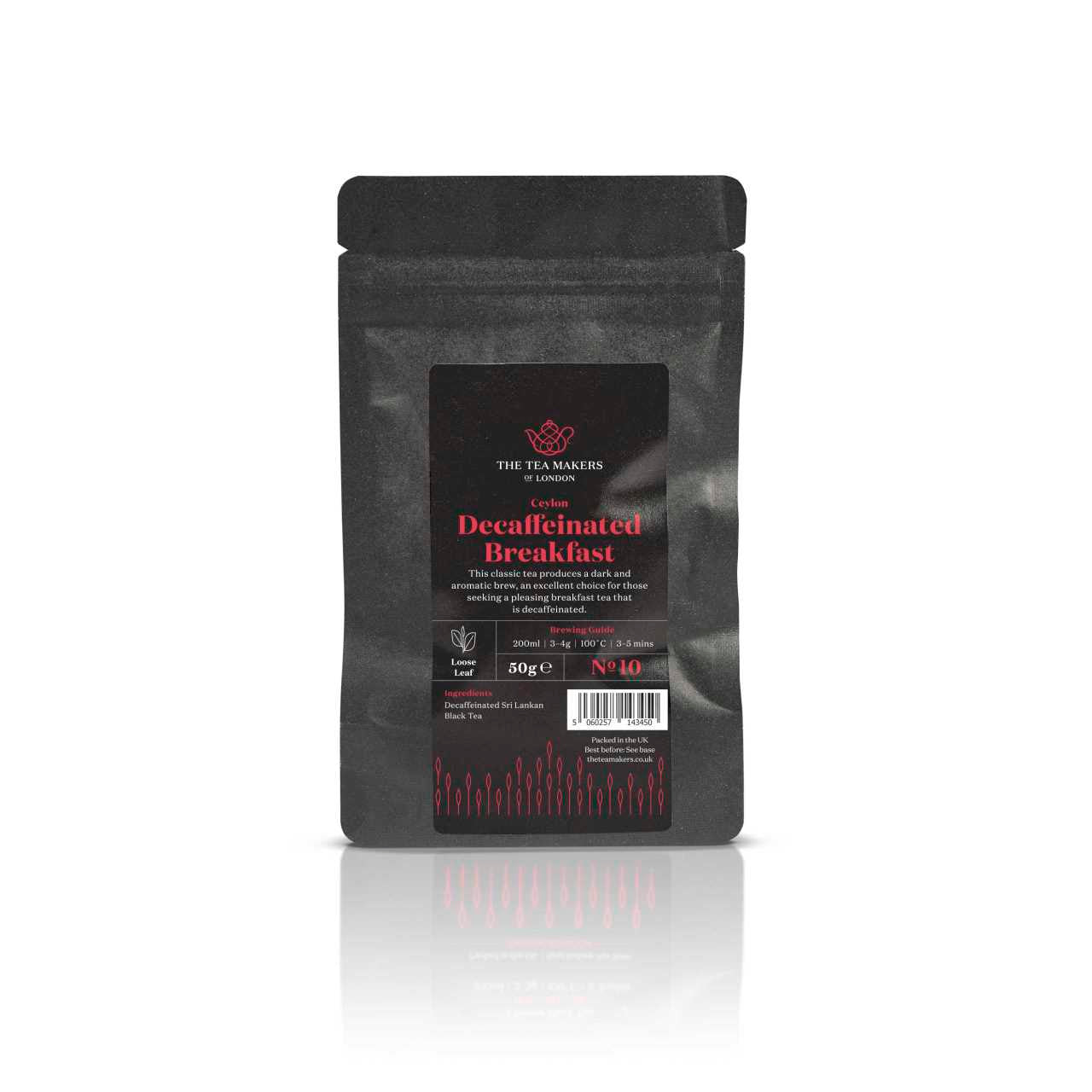
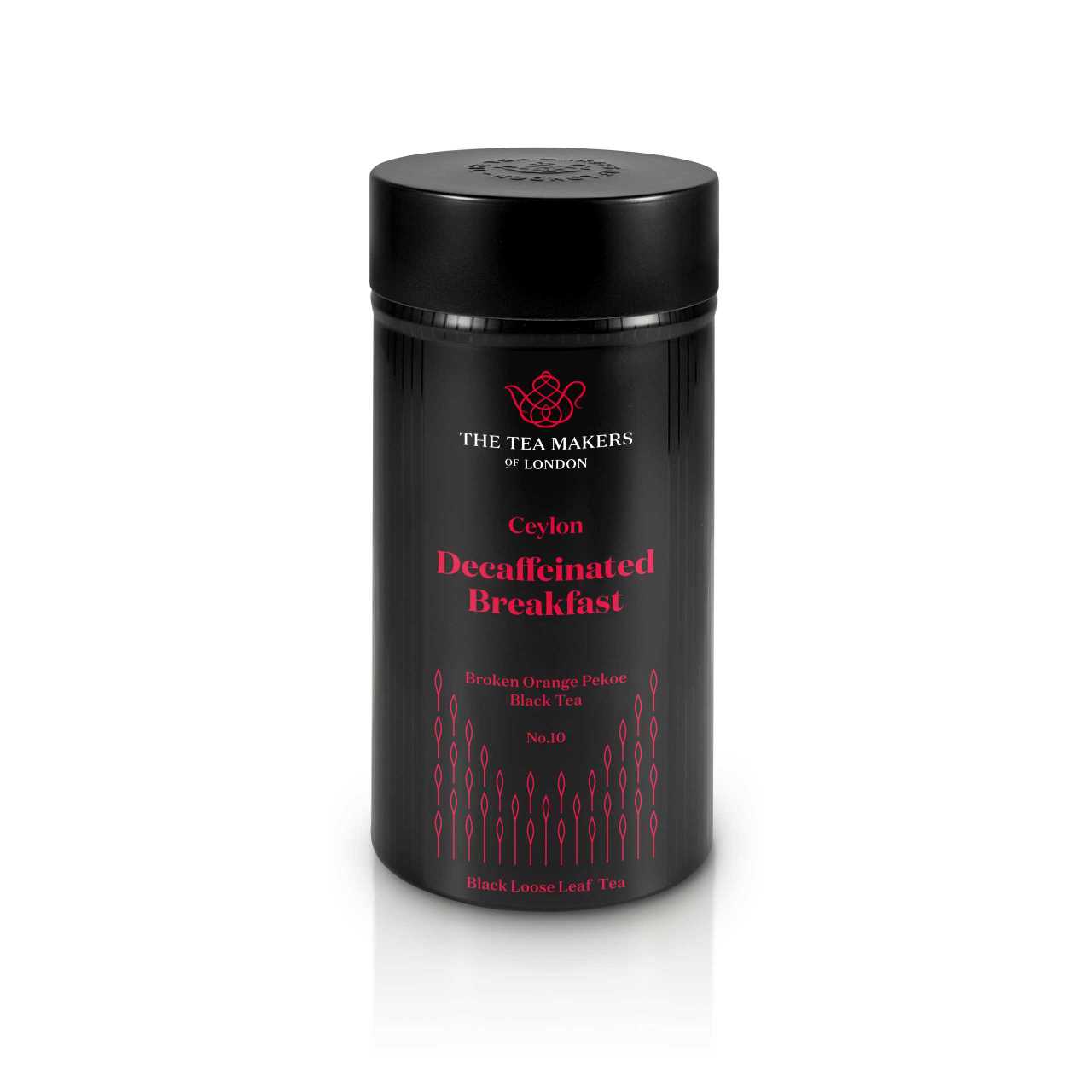
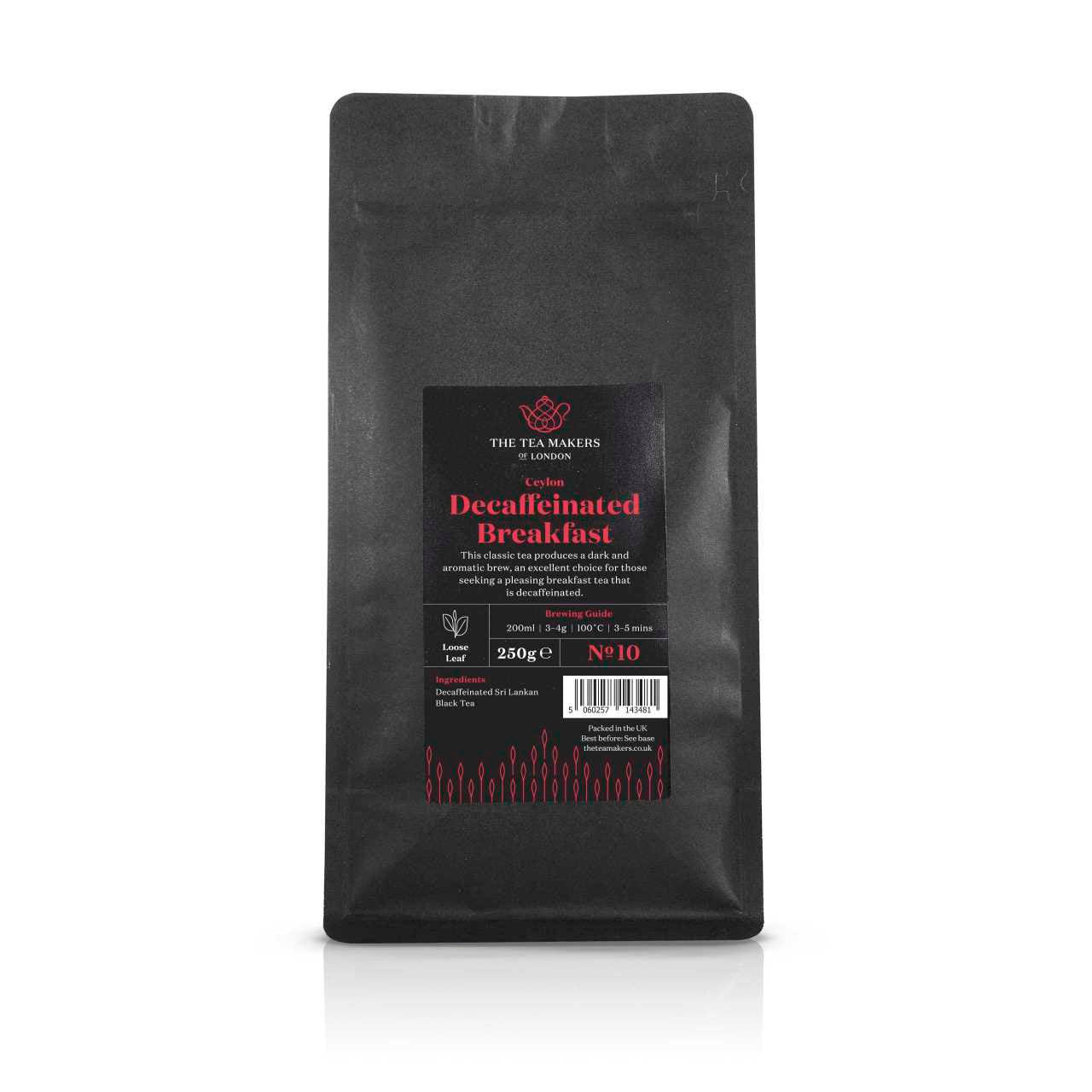
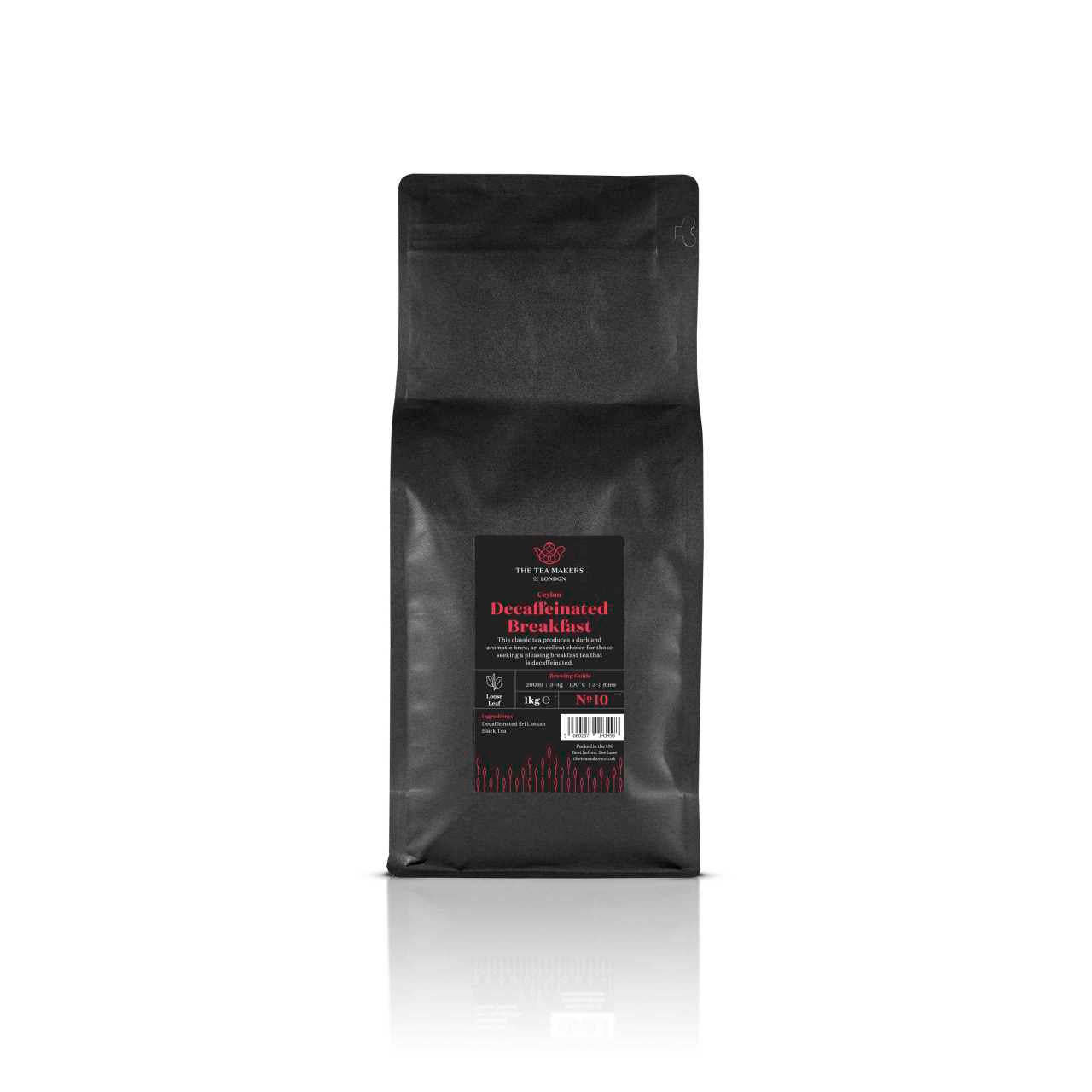
No. 10
Decaffeinated Ceylon - Loose Leaf Tea
Enjoy all the malty qualities of a premium Sri Lankan tea any time of day with our aromatic loose-leaf Decaf Ceylon Black Tea.
Choose options
Enjoy all the malty qualities of a premium Sri Lankan tea any time of day with our aromatic loose-leaf Decaf Ceylon Black Tea.
Enjoy all the malty qualities of a premium Sri Lankan tea any time of day with our aromatic loose-leaf Decaf Ceylon Black Tea.
The origins of our Decaf Ceylon Black Tea
If you love the brisk, malty character of a Ceylon breakfast tea but prefer to go low on the caffeine, our loose-leaf decaffeinated tea from Sri Lanka's Ruhuna district makes it a delightful option any time of day.
A BOPF (Broken Orange Pekoe Fannings) grade black tea with short, rolled-up leaves, our Decaf Ceylon Black Tea has had most of its caffeine removed, but its quality kept intact. The amber-coloured infusion is mild in flavour with a hint of sweetness, while the malty aroma points to this decaf brew's heritage as a premium Ceylon tea.
Harvested in Ruhuna's low-elevation tea estates, our decaf tea harnesses all the qualities of a classic Ceylon tea for two reasons. Firstly, it is made from only the finest Ruhuna tea leaves, which are low-grown in the south of Sri Lanka and renowned for their strong, full-flavoured characteristics. Secondly, the leaves are carefully decaffeinated by expert Sri Lankan tea farmers, using a gentle, natural CO2 decaffeination process that retains the delicate shape and flavour of the tea leaves while removing the majority of the caffeine. This makes it an excellent choice for those wanting to enjoy a low-caffeine cup of black tea in the morning or any other time of day – our decaf black tea can even be drunk before bed!
How is our Ceylon Black Tea decaffeinated?
Fun fact: the only true 'caffeine-free' teas are those that never contained caffeine in the first place, such as herbal infusions. In contrast, black teas will always retain some caffeine content, even after decaffeination, although legally, this has to be less than 2.5% of the original caffeine content.
There are four ways of decaffeinating tea, including methods that use chemicals (ethyl acetate/methylene chloride) and water processing. The caffeine in our Decaf Ceylon Black Tea is removed by the CO2 high-pressure method of decaffeination, a process to remove the caffeine molecules that utilise some of the most modern technology but also has minimal impact. Unlike other decaffeination methods, which add chemicals to the tea while simultaneously removing its health benefits – think those antioxidant-rich polyphenols – this is a natural cycle process using water, pressure, heat and CO2.
All decaffeination processes result in slight losses of raw material, but thanks to the selective, safe CO2 methods employed by the Ruhuna farmers, our Decaf Ceylon Black Tea retains its full colour and flavour, whether you enjoy it scooped from a caddy or in one of our biodegradable decaf tea bags.
Low caffeine Herbal and White Tea alternatives
For naturally caffeine-free tea options, try our Organic Rooibos or Vanilla Rooibos. For caffeinated white tea alternatives with a light, spring-like note, check out our Glenburn White Moonshine white Darjeeling and our White Peony from Fujian.
Explore the full range of our decaffeinated and caffeine-free teas here.
This tea offers a woody and toasty aroma and dark amber infusion. A pungent and brisk cup and noted of dried fruits with richly smooth mouthfeel.
Decaffeinated Sri Lankan Black Tea
